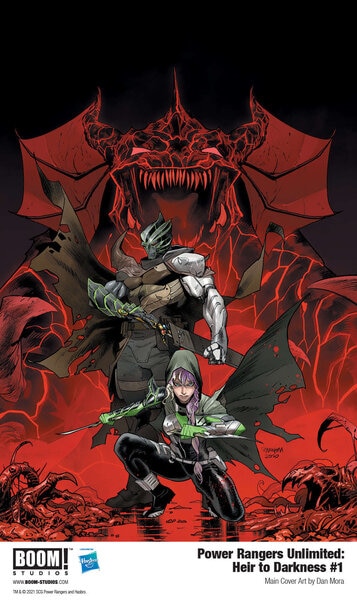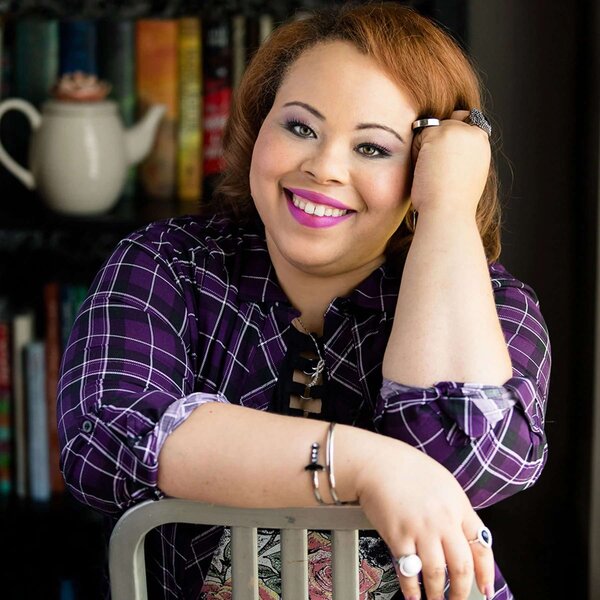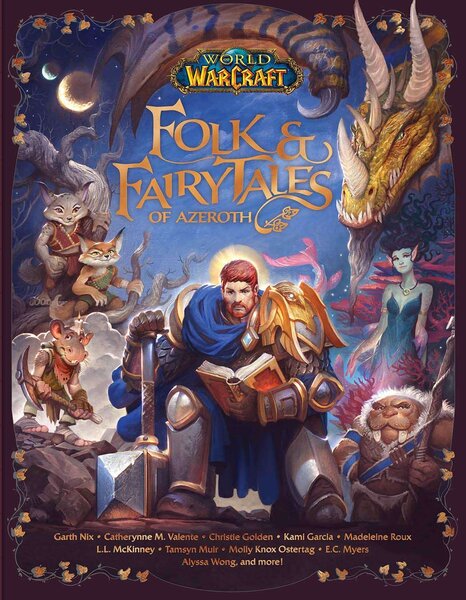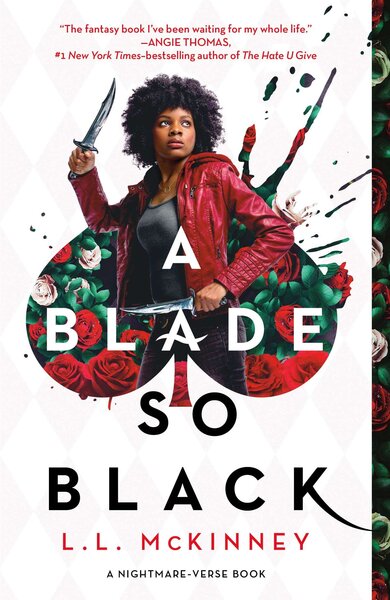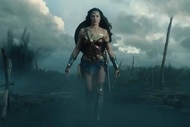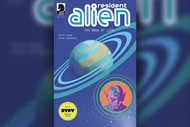Create a free profile to get unlimited access to exclusive videos, sweepstakes, and more!
L.L. McKinney is unapologetically breaking barriers in comic books and fantasy
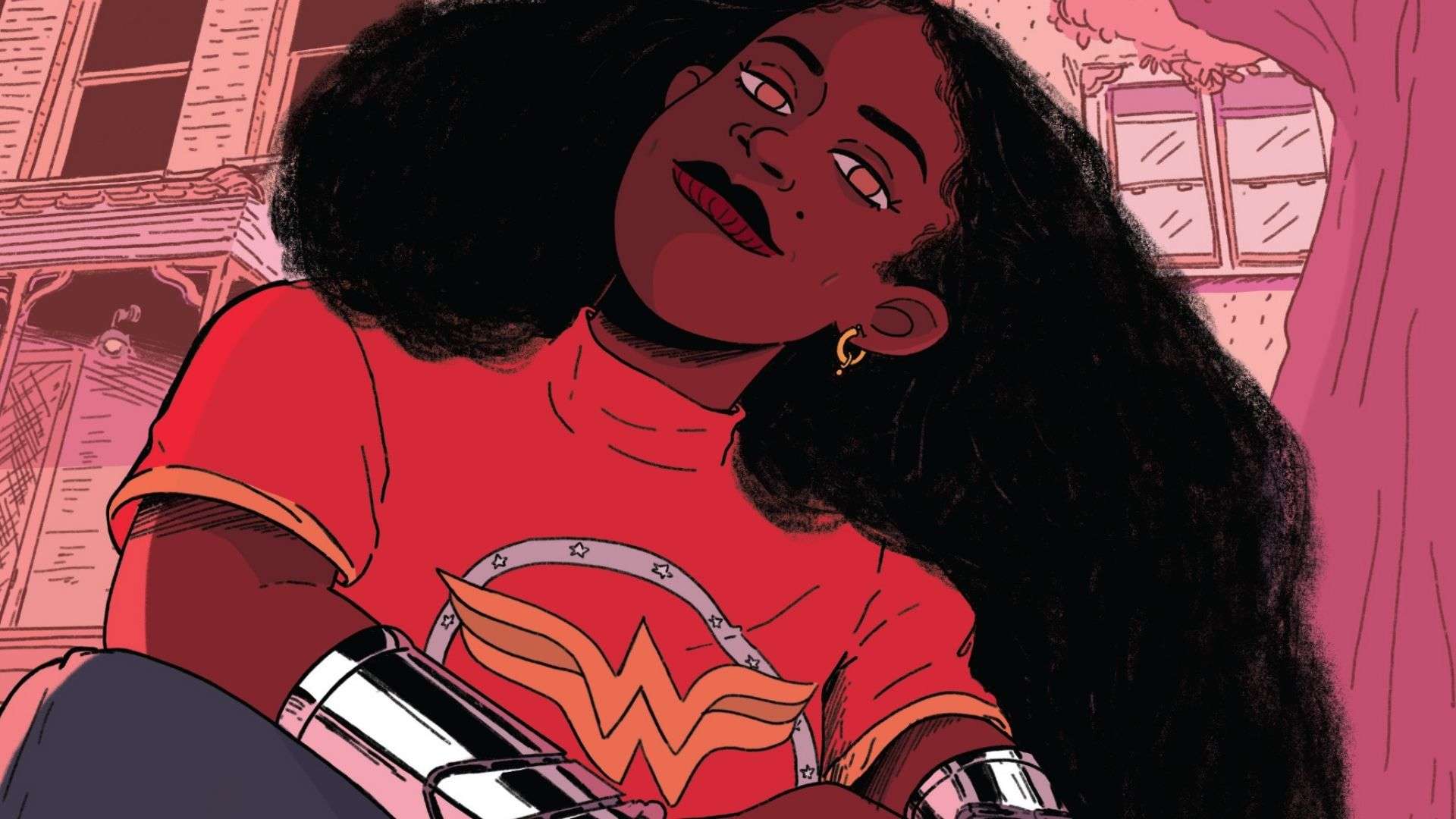
Award-winning fantasy and comic book author L.L. McKinney collects swords. Not medieval weapons, mind you, but fantasy blades that would impress even the most seasoned cosplayer. Keyblades, lightsabers, even Wonder Woman’s "God Killer" and Golden Lasso are featured on a “Wall of Badass Broads” in her den. These weapons are flanked by images of other women comic book heroes like Carol Danvers, Storm, Diana Prince and Black Panther’s Okoye.
In other words, McKinney is a fangirl’s fangirl.
Growing up in Kansas City, Kansas, on a steady diet of Buffy the Vampire Slayer, Angel, and anime, McKinney cut her teeth as a child writing fanfiction and roleplaying games about everything from Power Rangers to Sailor Moon. To this day, she’s an avid gamer and Dungeons & Dragons fan (she and her friends have been playing the same campaign since 2015). McKinney is best known for her Nightmareverse series featuring A Blade So Black — a new twist on Alice's Adventures in Wonderland, as this Alice is a Black teen from Atlanta who slays monsters in Wonderland, Buffy-style.
McKinney has penned work across fandoms, including episodes of Marvel’s Black Widow: Bad Blood series for SerialBox, a story in the upcoming World of Warcraft: Folk & Fairy Tales of Azeroth anthology, and Boom! Studios' Power Rangers Unlimited: Heir to Darkness, in which Pink Galaxy Ranger Karone’s origins as villain Astronema are finally explored. McKinney’s story, drawn by Simone Ragazzoni (Power Rangers: Drakkon New Dawn), is the first time the comic book series has had a Black writer.
But it’s McKinney’s work on the DC character Nubia in the DC Comics Future State entry Immortal Wonder Woman (drawn by artist Alitha Martinez), along with the standalone YA novel NUBIA: Real One (drawn by Robyn Smith), that has everyone talking.
Not only is NUBIA: Real One the first time the character has had a fully dedicated story arc, but again, it’s also the first time a Black woman has written for the character since she was introduced in 1973.
Off the page, McKinney has been breaking barriers and advocating for marginalized women within publishing for a while now. She is behind both the #WhatWoCWritersHear and #PublishingPaidMe hashtags that revealed the considerable discrepancies between how BlPOC writers are treated and paid vs. their white counterparts in the publishing industry. McKinney regularly speaks out for marginalized voices, but she also identifies diversity and inclusion problems within the science fiction and fantasy space.
SYFY WIRE spoke to McKinney about her favorite blade, why Nubia is so important to her, and why she will continue to fight for diversity and inclusion.
What’s your favorite sword, and did your collection inspire your writing?
My first sword, Masamune, Sephiroth's Sword from Final Fantasy VII, is near and dear to my heart. It was a gift, but part payment because my friends and I are weird where we'll pay each other back in favors or gifts.
In terms of inspiration, the swords are not in my office, but I can see them when I edit from the couch. I actually get more inspiration from movies or TV shows that were on when I first started. Like how you might smell something or hear a song, and it takes you back to a feeling, movies and shows take me back to that feeling.
It kind of helps me get into the mood to write if I'm having a more challenging time than usual. For instance, I'll turn on the very first Twilight because it’s what pushed me to pursue writing seriously.
So you are a Twilight fan?
Nope. I tried to read the first book but couldn’t finish. I [have] no hate [for] anybody who enjoys the books, it just wasn't for me. Sometimes, the movie is better than the book. But nope, that didn’t do it for me either. I’m a huge vampire fan and I just couldn’t get with their take on them.
Like you're a mortal and you choose to go back to high school? But I figured, if Stephenie Meyer can do it, I can do it too. So Twilight actually inspired me to write because I wanted a better fantasy story.
Not many people get to write two different versions of the same character so close together. What was it like writing for both Immortal Wonder Woman and NUBIA: Real One?
It was amazing! I have been in Nubia heaven for three years now. I've been hollering about Nubia forever. I’ve always said, "If I am writing Nubia, she's going to be Diana’s twin sister." She might look different because, you know, there are different versions of all the heroes. You've got Adam West’s Batman and Michael Keaton’s Batman, Ben Affleck, etc. But he's still Batman, you know? And so it's the same with Nubia for me.
So in Nubia: Future State, she is Wonder Woman, but I wanted to highlight where her powers could come from outside of the usual Greek Pantheon as well.
Is that where “Aunt Nancy” comes from in the Future State version?
Yes. Aunt Nancy is an iteration of Anansi the Spider God. And Aunt Nancy had a hand in Nubia's rearing. It's a loving relationship. I based a lot of her personality on my late grandmother. I don’t know how artist Alitha Martinez managed to draw her to look like my grandmother, but she did. And it’s magical to me.
In NUBIA: Real One, not only did her origin change, but she's dealing with real-world problems; she has a queer mom and she's dealing with police brutality and racism. What was the inspiration for that story?
Yes! In NRO, she has two moms, and it’s just something that I decided to do in this story to get her here into the real world. And she’s still Diana’s sister, even though she’s younger than her in this iteration and we address that. But this story actually stems from a stop on a school visit I had for another book [I was promoting]. One of these kids I was talking with commented, “It's really interesting how you have these heroes that can avert natural disasters, plug up volcanoes, and turn back time and stuff, but none of them seem to care about stuff that's happening to the Black community."
And I sat for a second and realized he was absolutely right.
So when I got the chance to write NUBIA: Real One, I decided I'm gonna give these kids that hero. And I’m incredibly lucky that I found Robyn Smith to create this with me.
Nubia: Queen of the Amazons was recently announced. Are you writing for that as well?
I’m not sure. But if I don't write another Nubia ever, I will be disappointed, but it won't take away from what I've done.
Nubia, Alice, Natasha — all of your characters have a particular kind of determined energy. Is that on purpose?
Accidentally on purpose. I’m trying to write what I didn’t see. When I first started writing, the first book I wrote was a Power Rangers story about a white boy. I was 12, and it was fanfiction, but I consider it a book because I wrote almost a hundred thousand words of it. My grandmother still has it somewhere, printed out.
I didn’t know anything about Black science fiction writers like Octavia Butler until college. Not for lack of my parents having Black literature in the house, but they were more contemporary or nonfiction. When I got older, I started researching, finding like-minded folks, and critiquing partners [to write my own stories].
Then I started to realize I can make an impact. I can be a part of this. Right around that time is when Disney announced that they were going to do the live-action Alice in Wonderland and I wondered, what if Wonderland was real?
Is that what inspired you to write A Blade So Black?
Yes. And so I'm thinking if Alice is real, then maybe the Jabberwockys are real too. And that’s when I wrote that fight scene from [A Blade So Black]. I kept going and eventually, all the other characters showed up. After writing Alice and putting her family on the page, along with my own experiences, it was sort of an awakening for me.
I had given myself permission to be the hero of a story. I’d never done that before. I’d been trained to [write myself] out of the story. That was the norm. And I knew something was wrong, but I didn't know what to do about it.
And from that moment on, every story that I've written has been me doing something about it.
So that's where that energy comes from. I might write all distinct characters with their distinctive voices. But at the core of each story is them figuring out that they know that something is wrong and that something has been wrong.
Each story is a character figuring out how to do something about it.
And you’re still doing something about it. How do you balance your art with your activism?
In part, my work is my activism. The worlds that I write reflect the world we live in. Also, I’m working in the spaces that I want to see changed. I’m a fan, first and foremost. My activism comes from not only wanting to push for what’s right and just, but because I want to see the movies and TV shows, books, comics, and video games that I love to do better.
I try to hold open doors and create space for other creatives that aren’t given opportunities. Like on Nubia, I insisted on working with Black women artists on both projects. Some people have taken that and ran with it and said I would only work with Black artists, and that’s simply not true. It’s public knowledge that I’m working with artist Simone Ragazzoni for Power Rangers Unlimited: Heir to Darkness. But some people don’t care about the truth. They only care about how they can attack someone advocating for change.
They also ignore the issues we have seen with people drawing and coloring many of these iconic characters. Or just Black characters in general. While it has gotten better, to some degree, let’s not pretend there isn’t a problem. [We are getting real] push back against allowing marginalized people in these spaces.
But they can stay mad. Because we’re not going anywhere.
